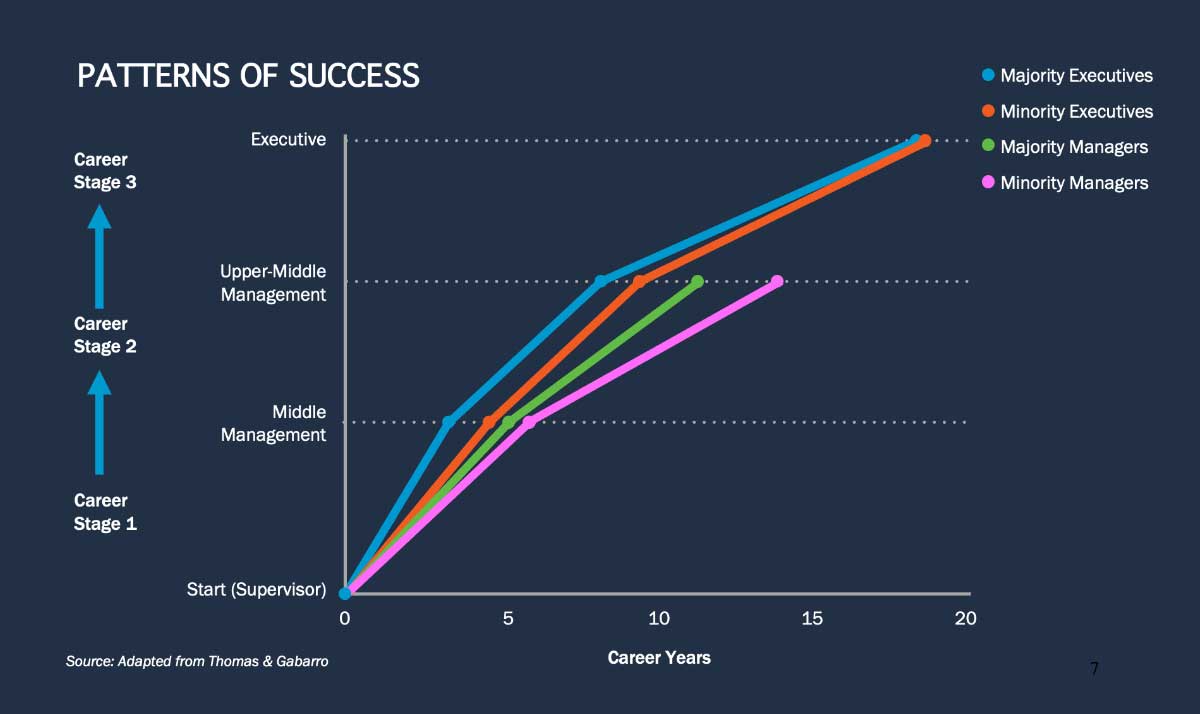“There is a direct link between whether you get those stretch assignments and whether you have expertise.”
Building Diversity: Part 3 of 3
Making meaningful advances in diversity, equity, and inclusion hinges on having an organizational culture that can support strategies to help managers from all walks of life become “stars” who can shine with all 5 of these executive-level qualities:
- Competence
- Credibility
- Confidence
- Relationships
- Resiliency
According to Dr. Linda Hill, founding partner at Paradox Strategies and head of the Leadership Initiative at Harvard Business School, years of research have made it clear that “what you know is based on what you get to do” and “what you get to do is based on who you know,” which determines your success much more than any other factor, including performance.
Underrepresented groups, particularly racial and ethnic minorities and especially those in the upper ranks, are hurt by this pattern given they rarely look like or know those in power. Ultimately, they miss out on key stretch assignments or other career boosters and plateau or become deskilled.
How can we prevent those plateaus from happening? First, leaders need to make a fundamental shift in mindset as well as put a specific focus on the development all upper-level managers need to further perfect their readiness for the top ranks.
The mindset shift depends on how an organization’s leaders perceive DEI. An outdated, ineffective paradigm assumes diversity is achieved by assimilation:
- “We’re all the same.”
- Hire diverse staff, encourage uniform behavior
But a more realistic and effective paradigm, Dr. Hill says, is one of differentiation:
- “We celebrate differences.”
- Match diverse staff to “niche” opportunities and their unique abilities
Especially important are these 5 career boosters that help make upper-level managers ready for the top:
- Proactive in addressing potential soft skill deficiencies
- Mentoring gives way to effective sponsorship from senior level executives
- Maintenance and renewal of heterogeneous network (inside and outside)
- Excellent performance record
- “Tempered radicals” – These are Individuals who are willing and able to be change agents when necessary to ensure that a company lives up to its values like being inclusive. When they see some behavior or policy that is inconsistent with that value, they will step up and address the inconsistency even though to do so is risky in that it might cost them in terms of their relationships or career.
Listen in as Dr. Hill explains the “meritocracy myth” during a recent workshop session of Stars Are Made Not Born. (audio 01:32)
Building diversity, equity, and inclusion with Paradox Strategies
Dr. Hill is a founding partner at Paradox Strategies and a professor at Harvard Business School, where she chairs the Leadership Initiative. She advises organizations and Fortune 500 companies on how to take a strategic approach to nurturing individual differences to unleash an organization’s full potential

“If you’re in the minority, one of the things that happens to you is that you become deskilled. You didn’t get to work in those stretch assignments so, frankly, you don’t have the expertise.”

